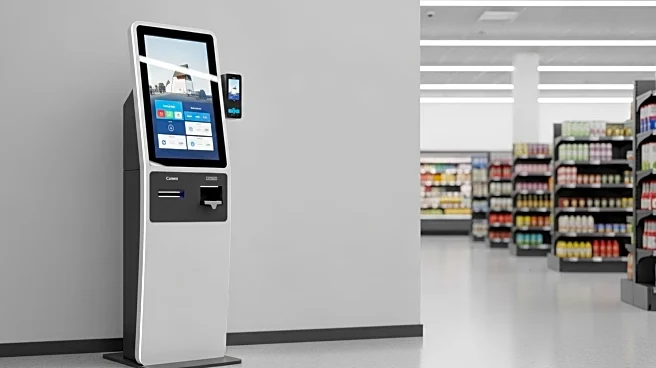What is the story about?
What's Happening?
Amazon has announced the closure of all its Amazon Fresh stores in the UK, marking a significant retreat from its till-free shopping model. The concept, launched in 2021, aimed to revolutionize the shopping experience by allowing customers to scan an app upon entry, select items, and have their Amazon account automatically charged upon exit. Despite the innovative approach, which utilized cameras and technology to ensure accurate billing, Amazon Fresh failed to gain traction in the UK market. The initiative was introduced post-pandemic as a contactless shopping solution but struggled to compete with established grocery chains like Tesco and Sainsbury's.
Why It's Important?
The closure of Amazon Fresh stores in the UK underscores the challenges faced by tech-driven retail innovations in gaining consumer acceptance. This development highlights the difficulty of shifting traditional shopping habits, even with advanced technology. For Amazon, this move represents a setback in its efforts to expand its physical retail presence and innovate shopping experiences. The decision may influence other retailers considering similar models, prompting a reevaluation of technology's role in physical retail environments. The failure to capture market share from major competitors suggests that consumer trust and convenience remain pivotal in retail success.
What's Next?
Amazon's decision to close its Fresh stores may lead to a strategic reassessment of its physical retail operations and technology integration. The company might focus on refining its approach or exploring alternative models that better align with consumer preferences. Other retailers may also reconsider their investment in similar technologies, potentially slowing the adoption of till-free shopping experiences. The closure could prompt discussions on balancing technological innovation with consumer readiness and market dynamics, influencing future retail strategies.
Beyond the Headlines
The Amazon Fresh closure raises questions about the ethical implications of surveillance technology in retail environments. The use of cameras and tracking systems, while intended for convenience, may have contributed to consumer hesitancy due to privacy concerns. This development could spark broader debates on the balance between technological advancement and consumer rights, influencing regulatory discussions and public perceptions of tech-driven retail solutions.














